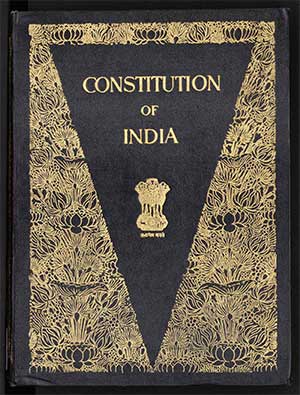Date : 12/08/2023
Relevance – GS Paper 2 – Polity – High Courts
Keywords – Constitution, Supreme Court, High Courts, Jurisprudential Wisdom
Context –
In recent times, unsettling clashes between one community and the other have engulfed districts in Haryana, resulting in loss of life and destruction. Amidst these challenges, the imperative for effective administration to restore order and uphold justice becomes evident. However, a disconcerting trend emerges as administrations seem to veer away from their responsibilities, reminiscent of actions witnessed in Uttar Pradesh. The overnight demolition of houses by the Haryana government, particularly affecting one community, underscores the urgency of safeguarding due process and equality under the law.
The Guardians of Justice: Courts' Mandate and Response
The Constitution enshrines the judiciary as the safeguard of fundamental rights and the embodiment of constitutional values. A comparative analysis of responses between the Supreme Court and High Courts unveils the need for a robust judicial role. The Supreme Court's restrained response during the Uttar Pradesh house demolitions leaves a void where pointed questions and decisive actions were expected. In contrast, High Courts like Punjab and Haryana exhibit a resolute demeanor, exemplified by Justices G.S. Sandhawalia and Harpreet Kaur Jeevan's piercing query. Their intervention, triggered by the court itself, shines as a beacon of hope in turbulent times.
The Challenge of Supreme Court's Inaction
Scrutiny of the Supreme Court's role in such scenarios brings forth pertinent questions. Why did it not exercise suo motu jurisdiction? Why did no party approach the apex court? These queries shed light on a broader concern – the threshold for judicial intervention to safeguard constitutional values. The words of Justice Vivian Bose remind us that the Constitution is meant for all citizens, emphasizing the need for proactive judicial action to protect the rights of every individual.
Embracing Jurisprudential Wisdom
While some senior judges may have raised concerns, it is paramount to draw inspiration from esteemed jurists. In the face of uncertainty, the teachings of legal stalwarts guide our path. During the dark days of the Emergency, High Courts emerged as bastions of justice, though let down by the Supreme Court. Reviving the spirit of jurisprudence is essential, with a renewed commitment to the principles that guided us through tumultuous times.
Empowerment of High Courts: Article 226's Expansive Role
Article 226 of the Constitution stands as a potent tool to uphold justice. High Courts possess the authority to issue various writs for the enforcement of fundamental rights and other legal rights, a power broader than that of the Supreme Court. The phrase 'for any other purpose' extends their jurisdiction beyond fundamental rights, providing a unique avenue for justice. High Courts can issue writs to entities within or beyond their territorial jurisdiction if the cause of action originates within their purview.
Promoting Fair Laws and Social Justice
The need for fair laws resonates across sectors, from workplaces to marketplaces, to prevent unjust practices. The government's pivotal role in enforcing these laws to ensure social justice cannot be understated. Equitable distribution of resources and opportunities underpins social justice, offering all citizens a level playing field. Initiatives to address societal imbalances, such as gender discrimination and insensitivity towards marginalized sections, reflect a commitment to individual dignity and well-being.
High Courts as Beacons of Hope: A Pinnacle of Constitutional Vigilance
The current landscape underscores the need for High Courts to emerge as guardians of justice. Their proactive and assertive approach during crises, as demonstrated by Punjab and Haryana High Court, is a testament to their pivotal role in upholding constitutional values. While the Supreme Court's restraint in some instances raises eyebrows, the potential of Article 226 serves as a powerful counterbalance. This enables High Courts to not only protect fundamental rights but also champion ordinary legal rights, thus providing a comprehensive safeguard against injustice.
A Call to Action: Resilience in Times of Challenge
In times of turmoil, the judiciary's role becomes even more pronounced. The lessons from the past, particularly during the Emergency, must guide us in the present. Upholding constitutional values requires a collective commitment from the entire legal fraternity, ensuring that the judiciary remains vigilant, resolute, and unwavering in its pursuit of justice. High Courts, armed with Article 226, possess the authority to challenge even the most formidable obstacles that threaten the fabric of our democracy.
Conclusion
In conclusion, the current challenges facing India necessitate a robust response from the judiciary. High Courts, equipped with the authority granted by Article 226, possess the potential to lead the way in safeguarding constitutional values. By exercising their power judiciously, addressing key questions, and ensuring equitable justice, High Courts can restore faith in the rule of law and the principles enshrined in the Constitution. This collective effort holds the promise of a brighter and more just future for all citizens, regardless of their background or beliefs.
As we navigate these complex times, the beacon of constitutional values shines ever brighter, guided by the resilience of the judiciary, the wisdom of jurists, and the commitment of society. It is through these collective efforts that we forge a path toward a more equitable and just future for our nation.
Probable Questions for UPSC Mains Exam –
- Question 1: Discuss the role and significance of High Courts in upholding constitutional values, with a focus on their power under Article 226 of the Constitution. Illustrate your answer with recent examples where High Courts have played a crucial role in safeguarding justice and equality during challenging times. (10 Marks, 150 Words)
- Question 2: Examine the comparative approach of the Supreme Court and High Courts in responding to instances of potential violation of constitutional values, as highlighted in the article. Critically analyze the factors that influence the exercise of suo motu jurisdiction by the judiciary and the implications of such actions on preserving the rule of law and fundamental rights in the country. (15 Marks, 250 Words)
Source – The Hindu






















